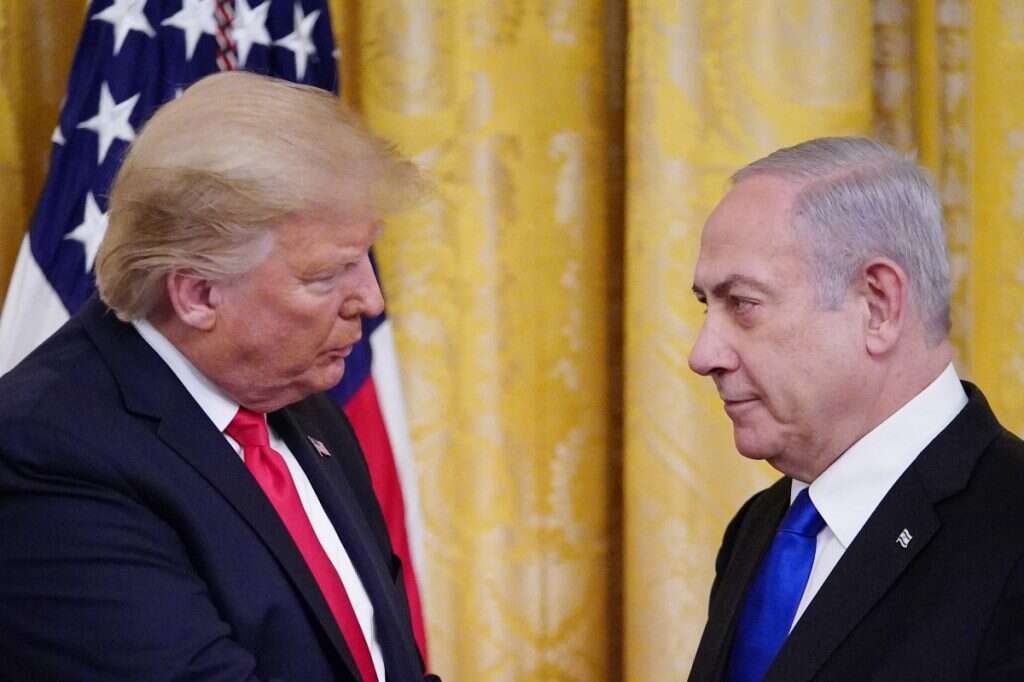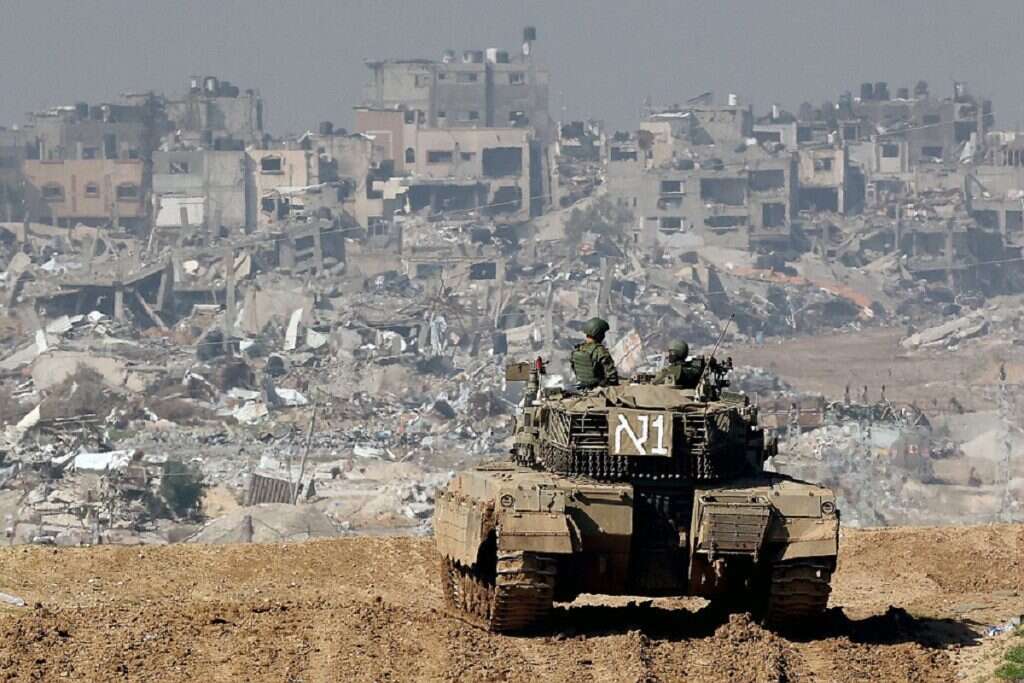A meeting between Israel's prime minister and the US president is always the most significant event on Israel's diplomatic calendar. This time, it carries implications for the entire region's future.
The meeting takes place at the start of the final term of a supportive, achievement-oriented, and results-driven president who isn't afraid to break frameworks and paradigms, and who readily employs unconventional tools and pressure points to reduce opposition.
It occurs against the backdrop of a struggle for global hegemony and the near-official opening of a trade war with far-reaching implications, not only for the global economy but also for the international political system.
The meeting comes as Israel stands at a diplomatic and security crossroads, facing decisions on several tensions: between the imperative to eliminate Hamas' rule and military capabilities in Gaza and the urgent return of all hostages in its custody, between the desire for normalization with Saudi Arabia and the requested price of ceasing combat in Gaza and returning the Palestinian issue to the negotiating table, between neutralizing Iran's nuclear threat and weakening its extremist regime versus concessions required in other issues to focus attention on this matter.
It's difficult to overstate the meeting's significance. Not only for the message its very occurrence sends, just two weeks after the president's inauguration and his first meeting with a foreign leader in this term, but also given its purpose and the initiatives it's expected to set in motion.

Prime Minister Benjamin Netanyahu and President Donald Trump will seek to present a shared vision for the Middle East and an agreed road map to achieve it. Additionally, they will aim to deepen and anchor the strategic relations between the US and Israel across a wide range of short and long-term issues. The directives emerging from this meeting will guide the diplomatic and security establishment efforts in both nations.
The scale of opportunities presented by Trump's approach matches the magnitude of its inherent challenges. Netanyahu will need to prove that Israel is an asset to the US: militarily, technologically, and economically, demonstrating that partnership with Israel isn't just fulfilling an commitment between allies sharing ideological views and similar values, but also a worthwhile investment for the American superpower.
Netanyahu will seek to position Israel as a regional power capable of self-defense and able to lead a coalition of moderate nations against Iran and radical Islam. A power that will be a key player in economic and technological development initiatives and assist in advancing American interests in the region. Trump will be pleased to be convinced that Israel can serve as America's anchor in the Middle East – strong and victorious rather than dependent and hesitant.
In the spirit of his recent UN General Assembly speech, Netanyahu will propose to expand and deepen the Abraham Accords and transforming the Middle East, through Israel and its Arab partners, into a bridge connecting Asia and Europe, the Indian Ocean and the Mediterranean Sea. Along this bridge, railway tracks, energy pipelines, and fiber optic cables will be laid. Such an initiative would impact global trade and economy and the living standards of about a quarter of the world's population.
Regarding Iran, the Trump administration clearly understands the need for an immediate change in approach. The Biden administration's courtship were interpreted by Tehran as insurance against the use of force, increasing its boldness and weakening America's position across the region. The IAEA director general recently warned that Tehran is "pressing the gas pedal of uranium enrichment." Trump recognizes Iran's tactics to create delays in negotiations and is likely already convinced of the need to set a timeline for diplomatic efforts, considering the date set for renewing sanctions ("snap-back") and security-related considerations.
However, at the meeting's core will be the question – how to square the circle: how to achieve within a measured timeframe both the return of hostages, Hamas' destruction, a ceasefire (to progress with Saudi Arabia) and returning the Palestinian state issue to discussion (as demanded by Riyadh).
Recent declarations and moves may hint at the formula Americans might propose.
It will include four components: First, continuing implementation of the ceasefire and hostage return agreement. Second, establishing new governance in Gaza replacing Hamas – a kind of "organizing committee" comprising Palestinian Authority representatives and other organizations including Hamas, managing Gaza's civilian affairs under supervision or guidance of an international-regional steering committee. Third, Trump's migration plan, framed as a condition for and part of the reconstruction process. Fourth, strengthening the PA's role subject to reforms it will undertake.
What would Israel receive under this formula? First, the hostages; second, Hamas' government overthrow; third, possibility for profound change in Gaza following Trump's plan and reconstruction program conditions; and fourth, normalization with Saudi Arabia.
What are the risks for Israel? Foremost – "Hezbollahization of Gaza" – externally, Gaza's government won't be identified with Hamas, but in practice would be its proxy since under this framework Hamas would remain the central power force in Gaza and under this government's auspices would preserve its military capabilities. It's no coincidence that Hamas already signals readiness for such a solution.

The second danger – military buildup – anyone thinking they can station "non-Hamas affiliated Palestinians from Gaza" at the Rafah crossing and assume they won't allow Hamas' strengthening ignores lessons from years of such experience. Truth be told, any entity besides the Israel Defense Forces tasked with border and crossing supervision cannot provide the minimum standard response Israel requires.
Third – erosion of reconstruction process conditions – Hamas has already proven its capabilities in this regard. The US and Israel struggle to control the many details related to reconstruction processes. Hamas knows how to exploit this well for its needs.
Fourth – renewal of the Palestinian "veto" over regional processes following the Palestinian issue's return to the discussion table. This while the Palestinian Authority itself hasn't condemned the Oct. 7 massacre, continues to indirectly support attackers and struggles to deal even with terrorism in areas under its responsibility, as seen in Jenin and Tulkarem.
After Oct. 7, Israel cannot afford to compromise on the end result in Gaza. Demilitarizing this area and creating conditions ensuring no future threat to Israeli civilians' security are vital to guarantee this combat round will be the last. Countries around us, even those growing remarkably stronger, are watching Gaza – its end result will affect their relationship with us. We cannot be considered a regional power while this enemy continues to exist alongside us.
The writer is the head of the Misgav Institute for National Security and Zionist Strategy.




